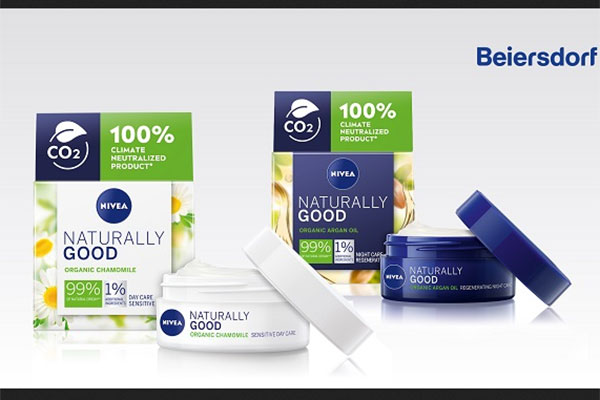
Sabic’s bio-based polypropylene (PP) resin, part of its TRUCIRCLE portfolio, will be used for producing the jars of Beiersdorf’s Nivea Naturally Good day and night face creams. The new Nivea packaging will be phased in at point-of-sale outlets worldwide from June 2021 onwards and make a major contribution to help Beiersdorf reduce its use of fossil-based virgin PP.
The new product is playing into Beiersdorf’s ambitious Sustainable Packaging Targets 2025 to reduce fossil-based, virgin plastic for its cosmetic packaging products by 50 percent. The new sustainable Nivea jars pay into the Sustainability Agenda CARE BEYOND SKIN, by which the company is targeting a significant reduction of its carbon emissions and environmental footprint.
The agenda has set three major packaging goals to be achieved by 2025 as compared to 2019: make all of the group’s packaging 100 percent refillable, reusable or recyclable; increase the share of recycled materials in plastic packaging to 30 percent; and reduce the use of fossil-based virgin plastics by 50 percent.
“We are excited to implement this important change in the packaging of our Nivea brand products and to be the first in the skincare mass market to use polypropylene made from second-generation bio-based feedstock on a global basis,” said Michael Becker, Head of Global Packaging Development at Beiersdorf.
“Together with Sabic, we have taken a major step forward in transforming conventional fossil-based packaging in the cosmetics and skin care segment towards fully sustainable material alternatives.”
Abdullah Al-Otaibi, General Manager of Engineering Thermoplastics & Market Solutions for Petrochemicals at Sabic said: “Innovative cosmetics packaging using our certified renewable polyolefins can be instrumental in minimizing fossil depletion across a wide range of further consumer mass product markets, and Beiersdorf’s new Nivea packaging can serve as a role model in this quest.” He continued: “Our materials from renewable sources facilitate the change-over from existing fossil-based applications without compromises on purity, quality, safety or convenience. Sabic is determined to help its collaboration partners benefit from this potential.”
Converting the packaging to renewable plastic not only has the advantage of conserving fossil resources, but also reduces CO2 emissions. According to Beiersdorf, approximately 76 g of CO2 are saved per jar produced, a reduction of around 60% compared to the fossil-based jar. The project therefore also contributes to Beiersdorf’s climate target of reducing its greenhouse gas emissions by 30% absolutely across the entire value chain by 2025.
Derived from second-generation renewable feedstock, such as tall oil waste from the wood pulping process in the paper industry, Sabic’s certified renewable polymers (PE and PP) are not in direct competition with human food production sources. – TradeArabia News Service






